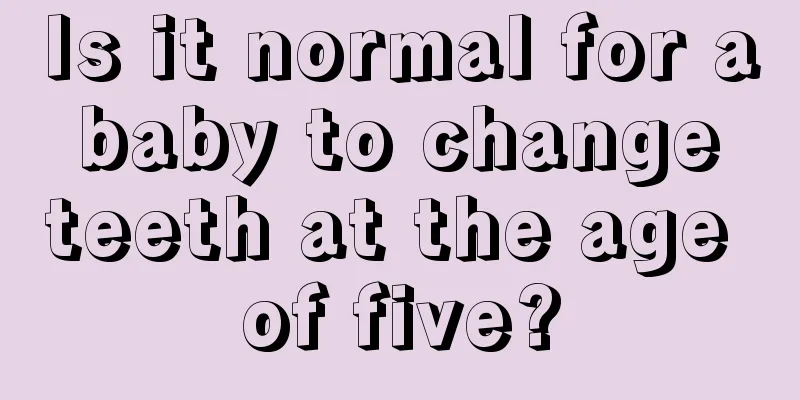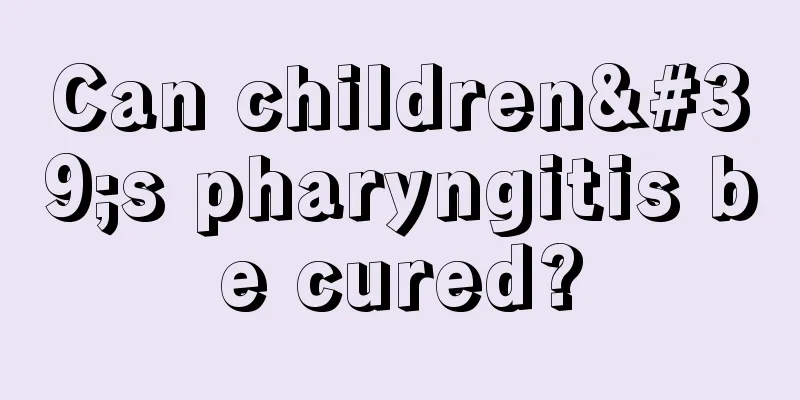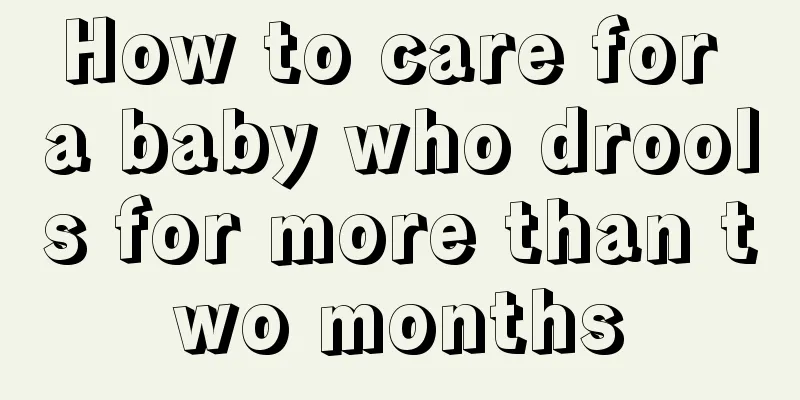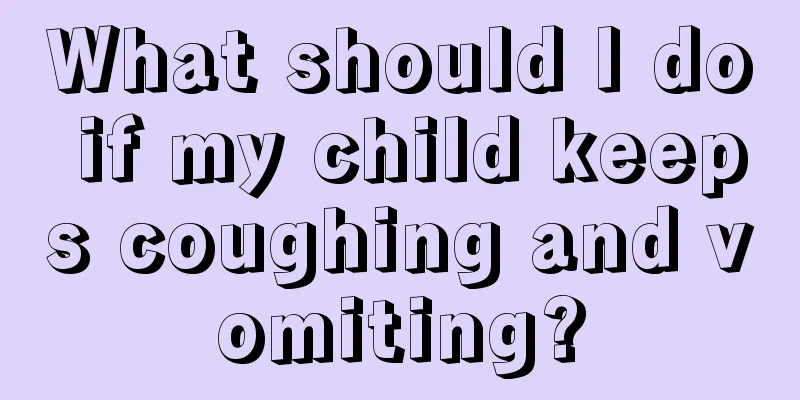Is it normal for a baby to change teeth at the age of five?

|
Babies will start to change their first teeth when they are 5 to 6 years old. This is a normal physiological phenomenon and parents do not need to worry too much. As long as they supplement their babies with calcium and let them drink more bone soup, it can promote the growth of teeth. Babies will start to change their teeth after they are 5 years old, but all their teeth will be replaced by the age of 12. If they have not replaced all their teeth after the age of 12, they may be malnourished and need to be checked. Is it normal for a baby to change teeth at the age of five? Generally speaking, deciduous teeth will become loose and fall out before children enter elementary school, and at the same time, permanent teeth will also show signs of eruption. Generally speaking, the first deciduous tooth falls out when the child is 6 years old. Of course, this is not a definite number, because some children's deciduous teeth begin to fall out when they are over 4 years old, and some begin to fall out when they are 7 to 8 years old, so parents do not need to worry too much. Most people have only two sets of teeth in their lifetime, namely deciduous teeth and permanent teeth. From the time your baby is six months old until he is two or three years old, his 20 baby teeth will gradually develop completely. The permanent teeth will gradually replace the deciduous teeth between the ages of 6 and 13, and then several molars will continue to erupt, eventually reaching 28-32 teeth (some people do not grow 4 wisdom teeth). How to care for your teeth during replacement 1. Pay attention to caries of deciduous teeth Before the age of five, children's tooth decay often occurs on the biting surface of the teeth. During the period of tooth replacement, if proper cleaning is not done, there will be a lot of stains between the teeth, which can easily lead to tooth decay problems between the teeth. However, many parents think that deciduous teeth will be replaced by permanent teeth, so they do not pay much attention to deciduous tooth caries. However, you should know that this type of caries will also affect the growth of permanent teeth. Many children have the problem of uneven arrangement of permanent teeth because of this, so you must pay attention to the problem of deciduous tooth caries. 2. Pay attention to the eruption of permanent teeth When the baby teeth are replaced, they should fall out automatically. However, when some children's permanent teeth grow out, the deciduous teeth are still very strong and unwilling to leave their "positions". This will cause the permanent teeth to emerge from other locations, resulting in the problem of double teeth. If this happens, you should see a doctor in time to remove the retained deciduous teeth, otherwise it will cause uneven permanent teeth and abnormal tooth occlusion. 3. Eat a balanced diet Some experts pointed out that the appearance of double teeth in children is related to their excessive eating habits, as they nowadays eat too finely. This results in less food chewing, and the teeth and jaw bones lose the proper exercise, which inhibits the absorption of the roots of deciduous teeth and the shedding of deciduous teeth. Therefore, it is best for parents to let their children eat more foods that require multiple chewing, such as peanuts, sugarcane, celery, etc. 4. Get rid of bad habits During the tooth replacement stage, some children may experience problems such as itchy gums, which may cause them to lick their teeth. Little do they know that this habit will lead to deformities of permanent teeth. In addition, chewing fingers, biting lips, etc. are also habits that interfere with tooth development. Therefore, it is important to correct children’s bad habits in a timely manner. If these bad habits cannot be corrected and crooked teeth have already occurred, you should go to the hospital for appropriate treatment in time. 5. Pay attention to oral hygiene During tooth development, the teeth themselves are still relatively fragile. Therefore, it is important to cultivate the concept of maintaining oral hygiene in children, clean their teeth in the morning and evening, and rinse their mouths in time after meals. If you have problems such as tooth decay, uneven teeth, or large gaps between teeth, you should go to the hospital for treatment immediately. |
<<: My child is 8 years old and still has no teeth
>>: Is it normal for a child to change teeth at the age of 6?
Recommend
What to do if your child's head is swollen after a fall
If a child's head is swollen after a fall, it...
Why does the baby have developmental delay?
In life, many babies suffer from developmental de...
What should I do if my baby is picky about food and doesn’t like to eat?
In our current lives, the baby's physical hea...
What should I do if my child suddenly has a fever at night?
Winter is the time when children have fever most ...
How to make sweet potatoes as complementary food for babies?
As we all know, sweet potato is a delicacy that i...
Why is my 2-year-old baby's gums red and swollen?
The baby's teething problem has always been t...
Aminoterol oral solution for children
When children are young, their resistance is actu...
Baby's tooth growth pattern
Babies do not have teeth when they are born, but ...
How to help your baby have a bowel movement
Not only is the baby small in size, but his body ...
What are the reasons why babies sweat a lot when sleeping?
The baby's health affects the entire family. ...
What to do if your newborn has milk rash
Neonatal milk rash is a common disease in infants...
What is the most effective way to stop vomiting in children?
It is inevitable that people will vomit in their ...
What causes hair loss in children? How to prevent hair loss
Every adult will experience hair loss to a greate...
What should I do if my baby’s eyes are inflamed?
Inflammation can occur anywhere in the body, whic...
Reaction to the first injection of pentavalent vaccine
The pentavalent vaccine is a combined vaccine tha...









